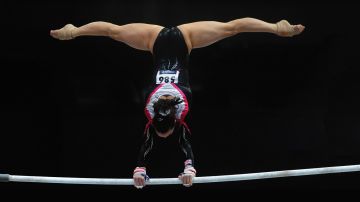The world of sport has much to teach the world of business
Understanding how teams work and enhancing performance is not just valuable on the sports field. Here Dr Phil Hopley explains why it is directly relevant to many of things we all do every day.
Winners – whether they work in an office, a factory, a control room or are world-class athletes – are not born. They are made.
It is understandable that some remain cynical. They feel that they have nothing in common with elite athletes. That elite athletes have no relevance to how they do their jobs or manage their teams.
But how often do other business leaders look out of their offices over to the track and field for inspiration to help them enhance their own and the performance of others?
Check out Sir Steve Redgrave, Sir Clive Woodward, or Sir Alex Ferguson’s diaries and you will find your answer. Very often.
Why is that?
A chance for stressed executives to escape from the office?
Business leaders living their unfulfilled sporting dreams?
Or could it actually be that elite sportsmen offer an insight into a world where being the best in their field matters and, in turn, teach businesses some valuable lessons?
Listen to any great sportsmen talk and you will hear compelling evidence of how planning, team selection, strategy, preparation, leadership, teamwork – coupled with hard work – were the backbone to their success.
But, more importantly, listen to how that message is delivered. It will be inspirational.
Sir Clive Woodward, British Olympic Association elite performance director and 2003 Rugby World Cup winning coach, often talks about the ability to “think clearly under pressure.”
Sir Steve Redgrave, a five-times Olympic gold medallist, writes about “mental discipline and overcoming low self- esteem.”
What both show is that we’re only human. All of us.
Yet many falsely assume that somehow elite athletes have bullet-proof minds. That they are not like the rest of us.
Over the years my work with Olympic rowers, professional rugby players, Premiership footballers and downhill skiers have shown me that this is not the case.
So what can we do to improve our resilience and performance?
And by resilience I mean an ability to deal with pressure, to recover and bounce back from set-backs and to be able to work sustainably at optimal levels.
On a simple level we need to establish common goals and link them to what is important to us personally.
We often manage the first, but not the second. And because of that, we miss the opportunity to build resilience. And without resilience we are more likely to get stressed.
But if we can establish common goals and link them to our values, we become motivated and believe in what we are doing and where we are going.
That said, don’t expect overnight results or success because it is not that simple.
First we have to discover what might be getting in the way of improving someone’s performance.
More often than not, it is a problem with how someone thinks – or perceives – things.
Good managers can usually spot – and deal with – issues in their team. But sometimes specific individual coaching is needed.
Just as in sport, we all need to be able to cope with pressure, negative thoughts and emotions if we are to perform at our best.
Cognitive behavioural coaching trains athletes and managers to keep focused on the job despite simultaneous difficult emotions.
Cognitive behaviour is thinking behaviour. Coaching helps to understand thoughts and feelings that influence attitudes and drive behaviours.
In an ideal world, managers and leaders should be allowing their teams to develop by giving them control and accountability for what they do.
It is about relinquishing control – and replacing it with support.
Managers who are too ‘hands-on’ are effectively micro-managing their teams and nothing can deplete morale faster than that because it says that you don’t believe your staff can do their jobs properly.
Give up a bit of control and you will not only reduce stress but you will also see improved performance. Managers often ask about underperforming teams. In my experience things tend to stay the same if there is not a culture of honest respectful communication.
Once people start talking openly about their concerns, it then comes back to the control issue.
Research for sport and business clearly shows that with greater control and accountability for what we do, we work better.
It’s about trusting each other to deliver. And for team leaders, supporting the team to deliver is the key.
In the run-up to the 2008 Beijing Olympics, the GB cycling team management took a long hard look at themselves. They decided that they had to change, so they gave up trying to control the athletes and instead created an environment which allowed them to grow.
And what a difference that made.
Much is written about leadership and getting the most from your team in sport or business.
But it was interesting how little attention was focused on head coach Jürgen Gröbler after Britain’s stunning performance in the recent World Championships in Bled, Slovenia, when the GB rowing crews won 14 medals to top the table.
David Bolchover, co-author of The 90-Minute Manager, was one who did recognise the pivotal role played by Jürgen.
He described him as a quiet, unobtrusive man who was not interested in the limelight.
He wrote: “His business equivalent is not the charismatic, rent-a-quote chief executive so beloved of the media, but rather the unsung middle manager who devotes his life to extracting the last drop of potential from the human resources at his disposal.”
Could this be an example to all leaders in business perhaps?

















